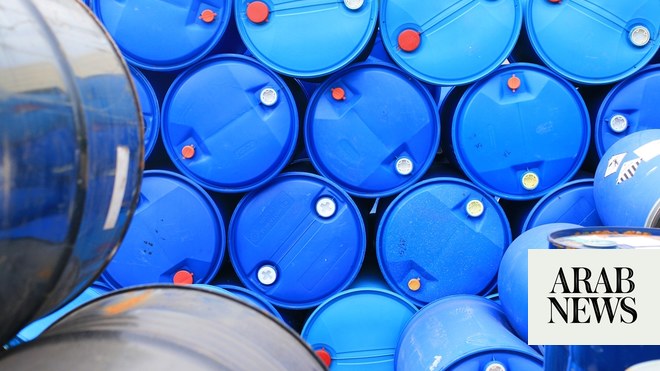
TOKYO: Oil prices rose on Tuesday as more evidence emerged that crude exports from Iran, OPEC’s third-largest producer, are declining in the run-up to the re-imposition of US sanctions and as a hurricane moved across the Gulf of Mexico.
Brent crude was up 26 cents, 0.3 percent, at $84.17 a barrel by 0244 GMT. On Monday, Brent fell to a low of $82.66, but mostly recovered as investors bet China’s economic stimulus would boost crude demand. Brent rose to a four-year high of $86.74 last week.
US West Texas Intermediate (WTI) crude futures were down by 24 cents, or 0.3 percent, at $74.53 a barrel. WTI fell to as low as $73.07 in the previous session but closed just 5 cents lower.
Iran’s crude exports fell further in the first week of October, according to tanker data and an industry source, as buyers are seeking alternatives ahead of the start of the US sanctions on November 4 and creating a challenge to other OPEC oil producers as they seek to cover the shortfall.
The Islamic Republic exported 1.1 million barrels per day (bpd) of crude in that seven-day period, Refinitiv Eikon data showed. An industry source who also tracks exports said October shipments were so far below 1 million bpd.
That is down from at least 2.5 million bpd in April, before President Donald Trump in May withdrew the United States from a 2015 nuclear deal with Iran and re-imposed sanctions. The figure also marks a further fall from 1.6 million bpd in September.
Last week, Saudi Arabia, the biggest producer among the Organization of the Petroleum Exporting Countries (OPEC), announced plans to lift crude output next month to 10.7 million bpd, a record.
“Iranian barrels are declining fast, and Saudi Arabia’s promise to balance will face a reality check in a month’s time,” JP Morgan said in an oil market note.
Oil companies operating in the Gulf of Mexico shut down 19 percent of oil production as Hurricane Michael moved toward eastern Gulf states including Florida.
If current forecasts prove accurate, the hurricane would largely miss major producing assets in the Gulf, analysts said, but any change of track could widen the impact.
The International Monetary Fund on Tuesday cut its global economic growth forecasts for 2018 and 2019, saying that trade policy tensions and rising import tariffs were taking a toll on commerce while emerging markets struggle with tighter financial conditions and capital outflows.












